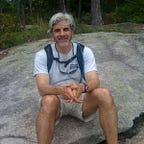Contempt
“Nothing living should ever be treated with contempt. Whatever it is that lives, a man, a tree, or a bird, should be touched gently, because the time is short. Civilization is another word for respect for life.” — Elizabeth Goudge
Relationship researcher, John Gottman, has identified four maladaptive emotional reactions that are so toxic for relationships that he has used an end times metaphor from the Book of Revelation to describe them. Gottman’s four horsemen (criticism, defensiveness, contempt, stonewalling) often occur in a negative cascade between partners and represent increasingly severe complementary adverse behavior. While each of these behaviors is destructive, Gottman’s research has identified contempt as the single greatest predictor of divorce. Contempt often becomes mutual and this generally foretells the end times of the relationship, or at a minimum, years of misery.
Robert Solomon, a philosophy professor at the University of Texas, distinguished the three emotions, resentment, anger and contempt from one another based on whether the object of the emotion was deemed to be of higher, equal or lower status. When you have contempt toward another, you are judging the other as beneath consideration, worthless, or deserving scorn, which simultaneously places you in the superior position of a judge. Interestingly, judges preside “over” and sit “above” the courtroom, and violation or disrespect of the court proceedings can lead to a charge of contempt.
The emotion of contempt combines the primary emotions of anger and disgust; thus, one might say that the person feeling contempt, likely feels threatened by someone for whom they feel revulsion. One can see the insidious, damaging impact this emotion has on a relationship; contempt is a cold, condemnation of being an object of disgust, which communicates to the condemned that they should remove themselves from the presence of their superior. This is precisely what happens.
When contempt transpires within couples and families the impact is particularly devastating. To be judged as disgusting by those from whom you most crave acceptance cuts the deepest wounds where we are most vulnerable. Tragically, children will inevitably align with their parents’ opinion and feel self-contempt, which can lead to a lifetime of highly critical internal dialogue. The devaluing impact of contempt is so painful that many will try to fight off its sting through defensiveness, withdrawal or by developing an impenetrable emotional barrier.
The emotion of disgust, which is part of the contempt formula, evolved to protect us from disease and became part of our behavioral immune system. As it started being applied to people, usually those who carried disease, it became a more established part of our emotional repertoire and was applied to foreigners or nonconformists. In today’s interconnected world we find ourselves drowning in a sea of contempt. Contempt is modeled daily by our leaders, leaders-to-be and the pundits who analyze them. Society’s disadvantaged feel it the most.
We fall into contempt far too easily, and it seems that we have lost sight of its calamitous repercussions. If only we could maintain a sense of shared humanity and keep the playing field level; then we might be able to experience our anger and upset without having to degrade the other person’s dignity. This takes humility, a natural antidote to contempt. Humility is aided through recognition of our subjectivity and drawing upon compassion, both of which will require some reprogramming of our natural tendencies. Our eyes point outwards and we mistake our perceptions for objective truth. Perhaps, we could come off our high horse and remember that there is always more to the other than what we experience.
“There’s nothing wrong with enjoying looking at the surface of the ocean itself, except that when you finally see what goes on underwater, you realize that you’ve been missing the whole point of the ocean. Staying on the surface all the time is like going to the circus and staring at the outside of the tent.”
― Dave Barry
John R. Lucy, Ph.D. is a psychologist in private practice at Decatur Psychology, LLC.
